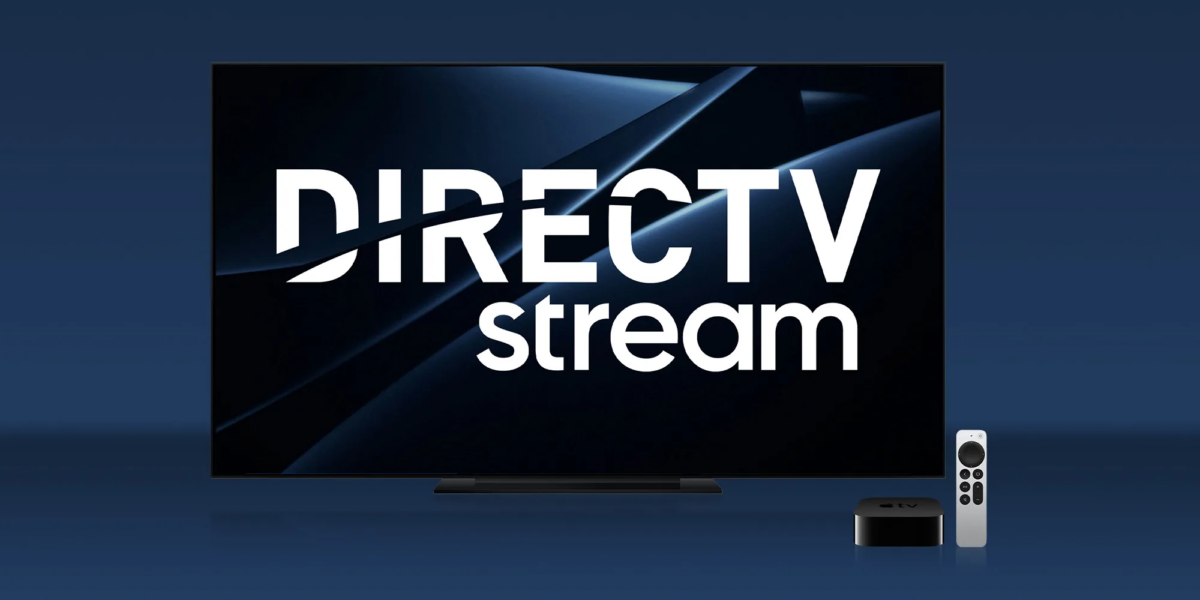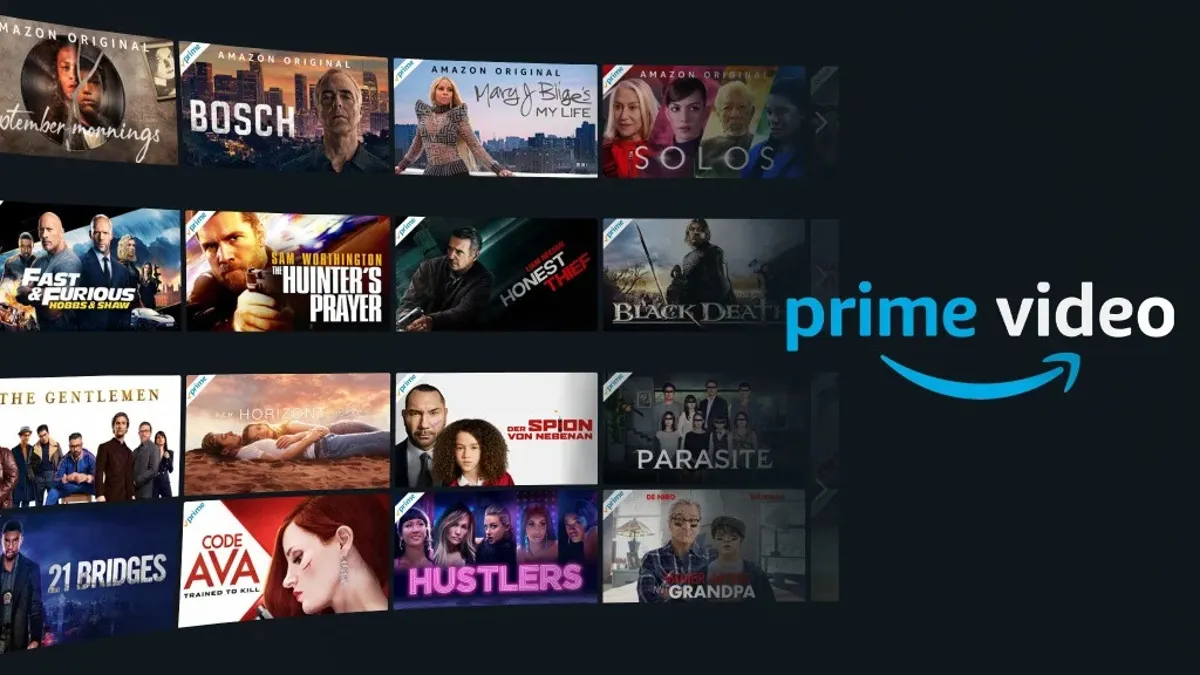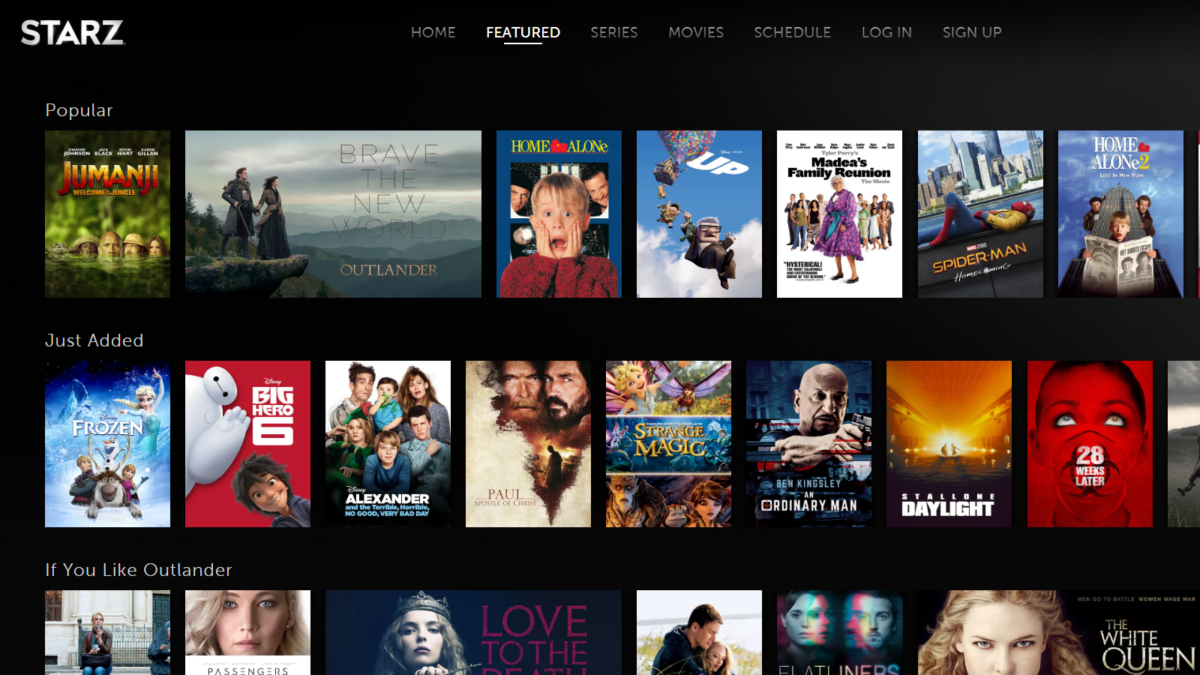For years, external hard drives full of downloaded movies and TV shows were a must-have item for deploying military members. But, as more bases install high-speed internet, streaming services have started phasing out these digital movie libraries.
Whether you’re deploying, thinking about cutting the cord at home or just trying out a new streaming service, you should always shop around for the best price.
Several streaming, cable, and phone services offer discounts to military members and veterans.
Included in This Guide – Our Top 3:
Do Any Streaming Services Offer Military Discounts?
With good internet connectivity, military members and their families can save at home and on military bases with streaming services. A host of TV streaming services, including Disney+, AppleTV and Amazon Prime, offer discounts to military members.
Other services, such as Hulu, Netflix, and YouTube, don’t have a specific military discount, but routinely offer great deals that service members can take advantage of. Check with streaming TV services regularly to see what deals or military discounts they’re offering.
Don’t forget to check with your phone or internet provider too. At least one cell phone provider’s military plan provides free and discounted subscriptions to some streaming services.
Table of Contents
- What to Know About Streaming Services
- Best Streaming Services for Military and Veterans
- Sling TV
- Hulu
- DirecTV Stream
- Paramount+
- Amazon Prime Video
- Disney+
- Netflix
- Max
- Apple TV+
- Fubo TV
- YouTube TV
- Starz
- Discovery+
- More Streaming Service Discounts
- Military Discounts on Cable and Satellite TV
- Military Cell Phone Plans with Free Streaming Services
- What Streaming Services Are Free for the Military?
- How Can I Stream Military Channels?
What to Know About Streaming Services
We contacted streaming services to round up the best discounts, including military discounts, on TV streaming services.
However, streaming services regularly run new subscriber deals and discounts, so the discounts and prices noted below are subject to change. Always check in with a service to make sure you’re getting the best deal. Even if you’re a current subscriber, you may be able to negotiate a better rate based on new customer deals.
Deployed military members may need to use VPNs, which encrypt and protect user data and information. Some streaming services block VPNs. Check with your duty station to find out if required VPNs may disrupt streaming services.
If you’re looking for a VPN for personal use, here are some of the best VPNs we found for military members and their families.
Best Streaming Services for Military and Veterans
Editor’s Note: Discount details listed below are subject to change. Always check with a service provider before buying a subscription.
Sling TV

Sling TV Review
Summary
Sling TV provides a variety of channels and packages, allowing users to tailor their viewing experience to their preferences. With plans starting at $40 per month, Sling TV stands out in the crowded streaming market for its affordability and flexibility.
Sling is one of the few services that allows you to access local broadcast channels, including ABC, NBC, CBS, and Fox. Access to local channels can vary depending on your location, but most major metros are available. If local channels are unavailable through Sling TV in your area, Sling offers a free HD antenna to connect to your TV to get local broadcast channels for free.
For sports fans, the Sports Extra package is a must-have addition at $11/month, especially for college sports fans with channels like the SEC Network, ESPN U, SEC Network+, and more. My local University regularly broadcasts its games exclusively on the SEC Network, and I have found that this is the most cost-effective way to access that channel.
- Affordable plans start at $40 per month for 47 channels.
- The top-tier plan at $55 monthly offers 53 channels, including ESPN.
- Supported devices include Roku, Amazon Fire TV, Apple TV, and Xbox One.
- Cloud DVR: 50 hours for free, $5 per month for 200 hours.
- Simultaneous streams: 1 (Sling Orange), up to 3 (Sling Blue), up to 4 (Sling Orange + Blue).
- Network channels: ABC, NBC, and Fox in select regions.
- Offers a variety of add-on packages for specific content groupings.
Pros
- More affordable than many rivals.
- Offers flexible options for channel selection.
- Includes top networks such as ESPN.
- Regularly adds new features to enhance the viewing experience.
Cons
- The interface could use some improvement.
- Limited local channels.
- DVR storage is less compared to some competitors.
Sling TV is a great option for military servicemembers and veterans who are looking for a cost-effective and customizable cable TV alternative. Its affordability and flexibility make it a strong contender in the streaming service market.
However, it’s worth noting that the interface could use some improvement, and the DVR storage is less compared to some competitors. Despite these drawbacks, Sling TV’s strengths make it a worthy consideration for those looking to cut the cord.
Hulu

Hulu Review
Summary
With a starting price of $8 per month, Hulu provides access to a great selection of current TV shows, quality original programming, and even live TV with an additional package. The service is compatible with a variety of platforms and devices, including Android, Apple TV, Fire Tablets, PlayStation, Roku, and more. Despite a recent price hike, Hulu remains a cost-effective choice for streaming, particularly for those who value up-to-date TV content and a high-quality selection of original shows.
- Starting price of $8 per month, with options for ad-free streaming at a higher cost.
- Allows for two simultaneous streams.
- Live TV available with a $65 per month package.
- Exclusive original programming, including joint ventures with the BBC.
- Wide device compatibility, including Android, Apple TV, Chromecast, Fire Tablets, PlayStation, Roku, and more.
- Next-day airings of cable and broadcast TV shows.
- A selection of offbeat movies and classic anime series.
- Option to bundle and save with Disney+ and ESPN+.
Pros
- Great selection of current TV shows, making it a must-have for cord-cutters.
- Inexpensive compared to other streaming services, even after the recent price hike.
- Quality original programming, with a better quality to quantity ratio than some competitors.
- Live TV streaming option, allowing access to channels like CBS.
- Unique offerings, such as offbeat movies and classic anime series.
Cons
- Frequent commercials, even with a paid subscription.
- Inconsistent selections from older TV seasons, which may limit binge-watching options.
- The base price does not include live TV; this requires a more expensive package.
- Inconsistent or no military discount.
- In the past, Hulu offered service members 10% off its basic package of $6.99, which includes ads. It is unclear if Hulu has continued this discount based on recent comments on its official forums.
Hulu’s unique offerings and focus on current TV content make it a standout choice in the crowded streaming market. While it has some drawbacks, such as commercials and inconsistent older TV season selections, its pros significantly outweigh its cons for many viewers. For military and veterans who value up-to-date content and a diverse range of programming, Hulu is a strong contender among streaming services.
DirecTV Stream

DirecTV Stream Review
Summary
DirecTV Stream provides a reliable streaming experience with a focus on live TV, making it an excellent choice for those looking to replace their traditional cable provider. It offers four monthly plans: Entertainment, Choice, Ultimate, and Premier, with the number of channels being the primary difference between the plans. The service also includes unique features like Lookback and Restart, and it supports up to 20 simultaneous streams on a home network.
- Wide range of channels: DirecTV Stream offers a broad selection of channels, including local broadcast affiliates, news channels, entertainment and lifestyle channels, and sports channels.
- Four monthly plans: Customers can choose from four different plans – Entertainment, Choice, Ultimate, and Premier, depending on their viewing preferences.
- Lookback and Restart: These features allow users to watch select programming from up to three days in the past and restart a live program from the beginning, respectively.
- Simultaneous streams: DirecTV Stream supports up to 20 simultaneous streams per account on the same home network, and up to three away from it.
- Parental control: DirecTV Stream is one of the few live TV streaming services that offer parental control features.
Pros
- DirecTV Stream provides a reliable, live TV streaming experience, ensuring smooth and uninterrupted viewing.
- DirecTV Stream is the only live TV service reviewed that offers Regional Sports Networks (RSNs) from all three of the major providers – AT&T, Comcast, and Sinclair.
- The service includes parental control features, allowing parents to block movies and TV shows by rating and restrict access to unrated content.
Cons
- Compared to competitors, DirecTV Stream’s plans are pricier, making it a less affordable option for some viewers.
- Some users may find the interface less intuitive or user-friendly compared to other services.
- DirecTV Stream’s packages do not include NFL Network, and the service doesn’t offer the NFL RedZone channel.
- No formal military discount, however one is in the works. Learn more about the military discount and how to save on DirecTV in our full review here.
DirecTV Stream offers a robust and reliable live TV streaming experience that can be a great fit for military personnel and veterans. Its wide range of channels, including news and sports, ensures that service members can stay connected to home, no matter where they are stationed. The ability to stream on up to 20 devices simultaneously on the same home network makes it a suitable choice for large military families.
However, its higher price point compared to competitors may be a consideration for those on a military budget. Despite this, the comprehensive features and reliable performance make DirecTV Stream a worthy contender in the realm of live TV streaming services, especially for those in the military community who value staying connected to their favorite shows, sports, and news.
Paramount+
Paramount+ Review
Summary
Launched in March 2021 as a revamped version of CBS All Access, Paramount+ has quickly gained traction with over 43.3 million subscribers as of August 2022. Paramount+ offers a wide array of content, including movies, TV shows, live sports, and local news. It also features one of the best military discounts for streaming services on the market, with a 25% discount on all plans after verification.
- Wide Range of Content: Paramount+ offers a vast library of classic and current movies, TV shows, live sports, and local news. It includes content from CBS, BET, Comedy Central, MTV, and the Smithsonian Channel, along with original titles.
- Multiple Subscription Options: Paramount+ offers multiple subscription plans at various price points, starting from $4.99 per month for the ad-supported Essential plan. The Premium subscription plan, which offers commercial-free viewing, costs $9.99 per month.
- Parental Controls: Paramount+ provides robust parental control options, allowing parents to set a four-digit PIN and select which ratings they want locked or unlocked.
- Multiple User Profiles: Up to six user profiles can be created with a single Paramount+ account, with the option to set certain profiles to “Kids Mode”.
- Simultaneous Streaming: Paramount+ allows up to three simultaneous streams in a single account, making it suitable for families.
Pros
- Affordable: With plans starting at $4.99 per month, Paramount+ is a budget-friendly option for viewers.
- Paramount+ is one of the few streaming services that offers a straight forward and easy to use military discount – get 25% off any Paramount+ plan for the life of your subscription when you verify your military status with SheerID.
- Offer available to active duty, retirees, reservists and National Guard, veterans, dependents and spouses.
- Diverse Content: From live sports and local news to a nostalgia hit from a big library, Paramount+ has something for everyone.
- Parental Controls: The robust parental control options make it a good choice for families with kids.
- Simultaneous Streaming: The ability to stream on up to three screens at a time from the same account is a definite plus.
Cons
- Limited Big-Name Originals: Paramount+ may not be the best choice for viewers looking for big-name originals.
- Delayed Access to New Releases: Film fans who want instant access to new releases may be disappointed.
- Limited Free Content: The selection of free content is limited compared to some competitors.
For military servicemembers and veterans, Paramount+ could be an excellent choice due to its affordability, diverse content, and dedicated 25% military discount. Its robust parental controls also make it a good option for families. However, those looking for big-name originals or instant access to new releases might want to explore other options.
Amazon Prime Video

Amazon Prime Video Review
Summary
Amazon Prime Video is available as a standalone subscription or bundled with Amazon Prime, which offers additional perks like free shipping on Amazon purchases, access to Amazon’s music streaming app, and more. Prime Video stands out with its impressive content lineup and the ability to add more on-demand channels whenever you want.
- Extensive Library: Prime Video boasts one of the largest streaming libraries of any service, including fan-favorite movies and TV shows, as well as Amazon Prime Originals.
- Add-Ons: Prime Video offers a variety of premium and sports content add-ons, allowing users to personalize their viewing experience.
- Simultaneous Streams: Users can watch on three screens simultaneously and create up to six user profiles.
- Offline Downloads: Prime Video allows users to download certain titles to view offline on Fire Tablet or the Prime Video app on their iOS, Android, macOS, or Windows devices.
Pros
- Bundled with Amazon Prime: Prime Video can be bundled with an Amazon Prime subscription, providing additional benefits like free shipping on Amazon purchases and access to Amazon’s music streaming app.
- Large Content Library: Prime Video offers an extensive library of content, including popular movies, TV shows, and Amazon Prime Originals.
- Add-On Channels: Users can enhance their viewing experience with a variety of premium and sports content add-ons.
- Free Trial: Prime Video offers a one-month free trial, providing ample time for users to explore the service before committing.
Cons
- Additional Costs for Some Titles: Some titles on Prime Video must be rented or purchased at an additional cost.
- Content Availability: Titles frequently come and go, meaning users may lose access to certain content.
- Fewer Original Hits: Compared to competitors like Netflix and Hulu, Prime Video has fewer original hits.
- No Military Discount: There is no military discount for Amazon Prime or its related services. However, Amazon has done special discounts on Veterans Day for Prime in years past. At this time, we do not know if those Veterans Day deals will continue.
For military servicemembers and veterans, Amazon Prime Video offers a versatile and extensive streaming service. The ability to bundle it with Amazon Prime provides additional benefits that can be particularly useful for those stationed abroad or living on base.
However, the additional costs for some titles and the fluctuating availability of content may be a drawback for some users. Overall, it’s a robust service with a lot to offer, making it a strong contender in the streaming market.
Disney+

Disney+ Review
Summary
Disney+ offers a vast collection of classic Disney movies and shows, along with original programming from blockbuster franchises like Marvel, Star Wars, and The Simpsons. Disney+ is a family-friendly platform that provides excellent value for its price, with plans starting at $8/month. It also offers a bundle with Hulu and ESPN+ for $13/month, providing a comprehensive entertainment package.
- Extensive library of Disney, Marvel, Pixar, and Star Wars content, including new original shows.
- Affordable pricing options with an ad-supported Basic plan starting at $8 a month.
- Access to Disney’s complete vault of classic movies and shows.
- Exclusive Star Wars and Marvel originals.
- Family-friendly content with a lack of mature R-rated shows and movies.
- App available on many devices, including smart TVs, streaming players, and mobile devices.
- Simple and easy-to-navigate interface.
- Premium performance and features, including 4K Ultra HD playback on all plans.
Pros
- Offers a vast collection of classic and new content from Disney, Marvel, Star Wars, and more.
- Competitive pricing and bundle options provide excellent value.
- Original content like “The Mandalorian” and Marvel series are exclusive to the platform.
- Supports 4K resolution and HDR color and contrast with Dolby Vision with every subscription.
- Allows up to seven different viewer profiles and four simultaneous streams.
- Disney+ now offers an exclusive military discount through The Exchange — eligible U.S. service members, veterans, and their families can sign up for Disney+ and receive 25% off the annual subscription price.
- Note: the military discount is applicable to the annual Disney+ subscription only, and does not apply to the monthly payment plan or The Disney Bundle.
Cons
- The focus on family-friendly content leads to a lack of mature programming geared toward adults.
- Some navigation issues with the interface, such as difficulty restarting a show or movie from the beginning.
- Roku devices are currently unable to access the ad-supported Disney Plus Basic plan.
Disney+ is a great choice for military servicemembers and veterans, especially those with families. The vast library of content, affordable pricing, and user-friendly interface make it a worthwhile investment. However, those seeking more mature content may want to consider other streaming services.
Netflix

Netflix Review
Summary
Netflix offers an impressive library of original shows and movies, along with licensed content from various networks. Netflix is available globally and can be accessed on a wide range of devices, including web browsers, iOS and Android mobile devices, smart TVs, game consoles, and more.
- Extensive Content Library: Netflix boasts an untouchably large library of original series and a strong collection of films. It houses more than 3,600 movies and 1,800 TV shows, providing a wide range of options for viewers.
- Original Programming: Netflix is known for its original shows and movies, some of which have received Oscar nominations and widespread acclaim.
- Global Availability: Netflix can be accessed from almost anywhere in the world, making it a convenient choice for military personnel stationed overseas.
- Multi-Device Support: Netflix can be streamed on a variety of devices, including smartphones, tablets, smart TVs, and game consoles, offering flexibility for viewers on the go.
- Multiple Viewing Plans: Netflix offers several subscription plans to suit different viewing preferences, including a basic plan, a standard plan, and a premium plan that offers 4K UHD streaming.
Pros
- Impressive Original Content: Netflix’s original shows and movies are often highly rated and cover a wide range of genres.
- Reliable Apps: The Netflix app is user-friendly and reliable across devices.
- Global Access: Its global availability makes it a great choice for military personnel who may be stationed in various locations around the world.
Cons
- Pricey for 4K Streaming: The premium plan, which offers 4K streaming, is relatively expensive compared to other streaming services.
- Early Cancellations: Netflix has a reputation for cancelling shows earlier than some viewers would like.
- Changing Library: The library of licensed shows and movies can change frequently, which can be frustrating for viewers following specific non-original series.
Netflix’s extensive library, high-quality original content, and global availability make it a strong contender for military servicemembers and veterans looking for a reliable and diverse streaming service. While it can be pricier than some alternatives, especially for 4K streaming, the breadth and quality of its content offer good value for many viewers.
Max

Max Review
Summary
- More than 35,000 hours of content, including both classic and newly produced shows.
- Content from popular Warner Bros. Discovery entities, including TLC, HGTV, Discovery, and Food Network.
- Libraries of popular shows such as “Friends,” “The Big Bang Theory,” “Sesame Street,” and “South Park.”
- Exclusive originals only available on Max.
- Three subscription tiers to choose from:
- With Ads ($9.99/mth)
- Stream on 2 devices at once with Full HD video resolution.
- Ad-Free ($15.99/mth)
- Stream on 2 devices at once with Full HD video resolution, plus 30 downloads to watch on the go.
- Ultimate Ad-Free ($19.99/mth)
- Ultimate Ad-Free offers four concurrent streams, 4K UHD streaming, and up to 100 downloads.
- With Ads ($9.99/mth)
- Compatible with a wide range of platforms and devices including Amazon Fire, Roku, Android, Android TV, Apple TV, Chromecast, iPhone, iPad, iPod touch, PlayStation 4, Macs and PCs, Samsung Smart TV, Xbox One, TiVo.
Pros
- Wide variety of content from different networks makes it a one-stop-shop for many viewers.
- Offers award-winning original programming and top-tier movies.
- Subscription tiers offer flexibility for different preferences and budgets.
- Existing HBO Max customers were automatically given Max subscriptions at their same pricing, avoiding any loss of content.
- Possible discounts through wireless phone, internet, or live TV streaming provider.
Cons
- No dedicated military discount.
- 4K content is only available at the highest subscription tier, unlike some competitors which offer 4K content at lower-priced tiers.
- The Last Chance section, which shows content that is soon to be removed, is difficult to find and no longer includes removal dates.
- While it includes Discovery-branded content, it’s important to note that not all Discovery+ content is available, and Discovery+ is still available as a separate, cheaper subscription for those who specifically enjoy Discovery-branded content.
Apple TV+

Apple TV+ Review
Summary
Launched in November 2019, Apple TV+ has quickly made a name for itself in the streaming wars, boasting award-winning shows and movies featuring some of Hollywood’s biggest stars. Despite its relatively small catalog, the service is known for its commitment to quality over quantity, with each title offering a unique viewing experience.
- Original Content: Apple TV+ is home to a number of exclusive, original shows and movies, including award-winning titles like “Ted Lasso,” “The Morning Show,” and “CODA.”
- Ad-Free Viewing: Enjoy uninterrupted viewing with no commercials.
- 4K HDR and Dolby Vision and Atmos: Experience top-quality visuals and sound with 4K, HDR, and Dolby Vision and Atmos on supported devices.
- Mobile Downloads: Download shows and movies to your mobile device for offline viewing.
- Family Sharing: Share your subscription with up to five other people on your Apple Family plan.
- Affordable Pricing: At $6.99 a month, Apple TV+ is one of the lowest-priced premium, ad-free streaming platforms around.
Pros
- Quality Content: Apple TV+ has a reputation for high-quality, original content that has garnered critical acclaim and audience appreciation.
- Affordable: Compared to other streaming services, Apple TV+ offers a competitive price point.
- Ad-Free: No need to worry about interruptions or distractions with ad-free streaming.
- Device Compatibility: Apple TV+ can be viewed on any Apple device, as well as on select smart TVs and streaming devices.
Cons
- Limited Catalog: The number of titles on Apple TV+ is smaller compared to other streaming services like Netflix or Disney+.
- No Older Content: Apple TV+ focuses on original content, so you won’t find older TV shows or movies.
- Unavailable on Android Devices: The service is not available on Android mobile devices, which may be a drawback for some users.
- Confusing App Experience: The Apple TV+ service is housed within the Apple TV app, which can be confusing as it also includes programming from other video subscriptions and Apple iTunes movie and TV rentals and purchases.
For military servicemembers and veterans who value quality over quantity and are looking for a budget-friendly, ad-free streaming service, Apple TV+ could be a great choice. Its focus on original, high-quality content provides a unique viewing experience, although the limited catalog and lack of older content may be a drawback for some.
Fubo TV

Fubo TV Review
Summary
Fubo TV provides a comprehensive live TV experience that can rival traditional cable services, with the added benefits of streaming. Fubo TV is compatible with a wide range of devices, including Roku, Fire TV, iPhone, iPad, and Android devices, making it accessible for users on various platforms.
- Extensive channel selection, including sports, news, and entertainment channels.
- In-depth options for sports fans, including foreign soccer leagues and cycling.
- Some 4K support for certain broadcasts.
- Cloud DVR service for scheduling recordings and replaying them on your own schedule.
- Multiple user profiles within a single account for personalized recommendations.
- Supports streaming on up to two devices simultaneously.
- Offers a mix of live TV and on-demand content.
Pros
- Wide range of channels, particularly sports channels, providing extensive coverage of various sports.
- User-friendly interface that is easy to navigate.
- High-quality streaming with consistent 1080p HD quality.
- Allows for channel surfing, similar to traditional cable TV.
- Offers a cloud DVR service for recording shows and movies.
Cons
- Does not include Turner-owned networks, such as CNN, TBS, and TNT.
- More expensive than some other streaming services, with the base Pro package costing $74.99 per month.
- Limited 4K support.
- Fubo TV does not have a dedicated military discount. However, GovX members can get $10/month off the first two months. Learn more here.
For military servicemembers and veterans, Fubo TV can be a great choice if they are sports enthusiasts, as it offers extensive sports coverage. However, the cost may be a consideration, as it is on the higher end compared to other streaming services. The lack of Turner-owned networks may also be a drawback for some users.
YouTube TV

YouTube TV Review
Summary
YouTube TV is a premium live TV streaming service that offers a robust selection of over 100 channels, including local ABC, CBS, NBC, Fox channels, and major cable news networks such as CNN, MSNBC, and Fox News. It also provides a wide range of entertainment channels like HGTV and AMC.
For sports enthusiasts, it includes national sports channels such as ESPN and FS1. The service is available on multiple platforms, including iOS, Android, Xbox, and select smart TVs, making it accessible wherever you are.
- Over 100 channels including local, news, sports, and entertainment channels.
- Unlimited cloud DVR storage, allowing you to record as many shows as you want and keep them for nine months.
- Up to three simultaneous streams, allowing different family members to watch different shows at the same time.
- Access to YouTube Originals.
- No restrictions on watching YouTube TV on devices outside your home.
- Easy-to-use, intuitive interface.
- Option to add premium channels, including Showtime.
Pros
- Broad selection of channels: YouTube TV offers a wide variety of channels, ensuring there’s something for everyone.
- Unlimited DVR: The unlimited cloud DVR is a standout feature, allowing you to record and store an unlimited number of shows for up to nine months.
- User-friendly interface: The service is easy to navigate, making it simple for users of all tech levels to enjoy.
- No location restrictions: Unlike some other services, YouTube TV doesn’t restrict where you can watch, making it a great option for those who travel frequently.
Cons
- Price: At $73 per month, YouTube TV is more expensive than some other streaming services.
- No HBO add-on: Unlike some competitors, YouTube TV doesn’t offer the option to add HBO.
- DVR limitations: You can’t delete individual recordings or create one-off recordings for any program aside from live sporting events.
- Some missing channels: Notably, A&E channels, including History and Lifetime, and regional sports networks in many markets are missing.
- No military discount: At this time, YouTube TV does not offer a military discount. However, a recent Tweet from the official TeamYouTube account suggested that people interested in the service can help make a military discount happen by sending a feedback request.
Overall, YouTube TV is a solid choice for military servicemembers and veterans looking for a comprehensive and user-friendly live TV streaming service. Its broad selection of channels and unlimited DVR make it a strong contender in the streaming market, though the price point may be a deterrent for some.
Starz

Starz Review
Summary
Starz stands out for its extensive movie catalog, bolstered by prolific film studio Lionsgate. Starz also supports offline downloads on mobile and up to four concurrent streams per account, making it a versatile choice for families or shared households.
However, its lineup of original content may not be as extensive or well-known as competitors like Netflix or HBO Max. The service is available for $8.99 per month, with a discounted annual plan at $74.99 per year.
- Extensive Movie Catalog: Starz offers a catalog of over 800 movies, including hit movies like “Bad Boys for Life,” “Jumanji: The Next Level,” and “Once Upon a Time in Hollywood.”
- Original Shows: Starz features all of the premium channel’s current and past original programs, including shows like “Blindspotting,” “Hightown,” “Outlander,” and “Power Book II: Ghost.”
- Offline Downloads: Starz supports offline downloads on mobile, allowing users to watch their favorite shows and movies without an internet connection.
- Simultaneous Streams: Up to four concurrent streams per account are allowed, making it suitable for families or shared households.
- Parental Control Tools: Starz offers easy-to-use parental control tools, allowing parents to set restrictions on a per-profile basis.
Pros
- Large Movie Selection: Starz offers an extensive movie library, distinguishing it from many other streaming services.
- Offline Viewing: The ability to download shows and movies for offline viewing on mobile is a significant advantage, especially for those who travel or commute.
- Simultaneous Streaming: The service supports up to four simultaneous streams per account, which is a plus for families or shared households.
- Competitive Pricing: At $8.99 per month, Starz’s pricing is competitive with most other on-demand services.
Cons
- Limited Original Content: Compared to competitors like Netflix and HBO Max, Starz has a limited lineup of original shows.
- Interface Design: The app and web interface designs could be improved to provide a more premium user experience.
- Lack of 4K Streaming: Unlike some competitors, Starz does not support 4K streaming.
- Limited Accessibility Options: Starz offers the bare minimum in terms of accessibility options, lacking customization options for subtitles and other accessibility features found in competitors like Hulu and Netflix.
- No Military Discount: Starz does not offer a dedicated military discount. However, there are discounts and promo codes that are available to the general public that can further reduce the cost of a subscription.
Starz is a solid choice for movie lovers, offering an extensive catalog of films that sets it apart from many other streaming services. Its support for offline downloads and up to four simultaneous streams makes it a versatile option for families or shared households.
While its original content may not be as extensive or well-known as that of some competitors, it does offer a unique selection of shows that some viewers may find appealing. The service’s competitive pricing also makes it an attractive option for those looking to expand their streaming options without breaking the bank.
However, improvements could be made in areas such as interface design, 4K streaming support, and accessibility options. Overall, for military servicemembers and veterans seeking a robust movie library and the flexibility of offline viewing, Starz is a worthy contender in the crowded streaming market.
Discovery+

Discovery+ Review
Summary
Discovery+ is a subscription-based streaming service that offers a vast library of content from popular networks such as HGTV, TLC, A&E, and Food Network.
With more than 55,000 hours of programming, Discovery+ provides a mix of top-rated shows from its network partners and original content created exclusively for the streaming platform. The service is available in the United States via various devices including phones, tablets, computers, televisions, and streaming devices.
- Extensive Library: Offers more than 55,000 hours of programming from 21 different television networks.
- Original Content: Features new shows created exclusively for the streaming service, including content from big names like Kevin Hart, Ludacris, Amy Schumer, and David Schwimmer.
- Multiple Devices: Available on Android and Apple phones and tablets, Amazon Fire TV & Fire Stick, Android TV, Apple TV, Google Chromecast, Roku devices, Samsung TVs, Xbox gaming consoles, and web browsers via desktop or laptop.
- User Profiles: Each account includes up to five user profiles and allows for four concurrent streams.
- Pricing: Offers two subscription plans, an ad-supported version for $4.99 per month and an ad-free version for $6.99 per month.
Pros
- Value for Money: With a vast library of content and original shows, Discovery+ offers good value for its subscription price.
- Variety of Content: From home improvement and food to true crime and lifestyle, Discovery+ has a wide range of content to cater to diverse interests.
- User-Friendly Interface: The service offers an easy-to-navigate interface on both TV and mobile apps.
Cons
- No Live Streaming: Discovery+ does not offer live streaming of channels; it only provides on-demand content.
- Ad-Supported: The basic subscription level includes ads, which some users might find disruptive.
- Delay in New Episodes: New episodes of ongoing shows may not be immediately available on the platform, as there appears to be a waiting period before they are added to the service.
- Discontinued Military Discount: At present, Discovery+ does not provide a specific discount for military personnel.
- If you’re currently benefiting from an active military discount, Discovery+ will continue to honor your subscription.
- This offer remains valid as long as you are an active-duty military member, a military spouse, a reservist, or a veteran of the United States or Canadian Armed Forces, and provided there are no further changes to the military subscription offer from Discovery+.
- If you decide to cancel your subscription for any reason, Discovery+ will not be able to reinstate your subscription under your current military offer.
For military servicemembers and veterans who enjoy a wide range of non-fiction content, Discovery+ could be an excellent addition to their entertainment options. Its extensive library, including content from popular networks and original shows, offers a variety of choices to suit different tastes.
However, those who prefer live streaming or want immediate access to new episodes of their favorite shows might find some limitations. Overall, Discovery+ offers a compelling package for its price, making it a contender in the crowded streaming market.
More Streaming Service Discounts
These streaming services offer new subscription discounts, but don’t advertise a year-round military or veteran discount:
MLB.TV
Major League Baseball airs a lot of games in a season, which accounts for its higher price point. However, MLB offers a one month 35% discount to military personnel.
As with Disney+, you can access the MLB.TV discount through your GovX account. After that, viewers can choose from single team packages starting at $119.99, or an entire season option beginning at $139.99, or $24.99 per month.
Amazon Prime Video subscribers can add MLB.TV and 100+ more channels – no cable required. In addition, Amazon gives a 7-day free trial of MLB.TV (on top of their 30-day free trial of Amazon Prime). MLB.TV via Prime Video is currently on sale at $57.99 for a season subscription. Regular pricing is $24.99/month for the All Team Pass, and $49.99/year for a Single Team Pass.
NFL Game Pass
Military personnel stationed outside the U.S. can get a 25% discount for the season. The offer is not valid inside the U.S., Canada or China. Game pass subscriptions are temporarily closed until preseason begins, according to the NFL game pass website. Subscriptions previously cost $99 for the season.
Showtime
Showtime’s military discount shaves $2 off it’s regular $10.99 list price. Active-duty, reserve and National Guard military members, veterans, retirees and military dependents can access all of Showtime’s programming for just $8.99 a month.
Military Discounts on Cable and Satellite TV
DirectTV
DirectTV satellite service provides a military discount, autopay and bundling discount for new subscribers through Veterans Advantage. For $54.99 per month (plus taxes), subscribers can access over 160 channels for a year when they sign an two-year contract.
Dish
Dish offers its $240 Stars & Stripes Value Pack FREE to active-duty military members. This add-on discount TV streaming package includes access to more channels such as the American Heroes Channel, Smithsonian Channel, STARZ Encore Westerns and others. Also, active-duty military members can get one free move rental every month.
Dish’s military package also upgrades digital video recorders (DVRs) to hoppers, so military members can stream their favorite shows to their mobile devices, so they can keep watching from anywhere in the world.
Military Cell Phone Plans with Free Streaming Services
- T-Mobile Military Discount with Free Streaming Services: T-mobile provides access to streaming through its 50% discounted Magenta Military Plan, which includes a free basic Netflix subscription at the Magenta Military signature plan level and a free standard Netflix subscription at the Magental MAX Military premium plan level. Plans range (with autopay) from $25-35 depending upon such features as streaming and data and texting speeds. Both T-mobile military plans include 5G network access for free.
- Verizon Military Discount with Free Streaming Services: The carrier discounts its service to military personnel with four plans ranging from $30-50. The military discount also provides up to a 50% discount for home internet service (where available). Their upper end plans provide free streaming for Hulu, Disney+, and ESPN+.
What Streaming Services Are Free for the Military?
AFN
Armed Forces Network offers TV and audio streaming free for the military. Service members must register to get a signal decoder that can access the AFN network. AFN offers a variety of scheduled programming, such as news, sports, tv programs, and movies.
In March 2022, AFN launched the AFN Go app, which allows militar members to stream music, news, talk radio programming and local information to internet connected computers or to Apple or Android mobile devices, according to DOD.
DOD Content Libraries
Military personnel and dependents of all ages can access a variety of free content through Military One Source and DOD MWR Libraries, including streaming services for documentaries and do-it-yourself technical help. DOD libraries also have several options to stream audio books and music or rent e-books for your Kindle, tablet or mobile device.
Boingo TV
Military members who live in base housing, like barracks, can access Boingo TV through an internet app, starting at $19.95 a month.
However, Google app store reviewers have gave the app less than two stars out of five, citing issues like slow speeds for popular sporting events, slow customer service responsiveness (24-hour reply to emails) and sign-in problems.
How Can I Stream Military Channels?
No and low-cost military streaming services offer the best channel options for military themed programming such as VET TV, which costs $4.99 a month. Other channels, like the Military Channel, are only available as standard cable or satellite programming.








Comments:
About the comments on this site:
These responses are not provided or commissioned by the bank advertiser. Responses have not been reviewed, approved or otherwise endorsed by the bank advertiser. It is not the bank advertiser’s responsibility to ensure all posts and/or questions are answered.
carla says
Apple TV no longer offers any military discount. It’s only for purchasing Apple products.
Elle says
Fox Nation gives veterans and military one year free and has great renewal prices for them.